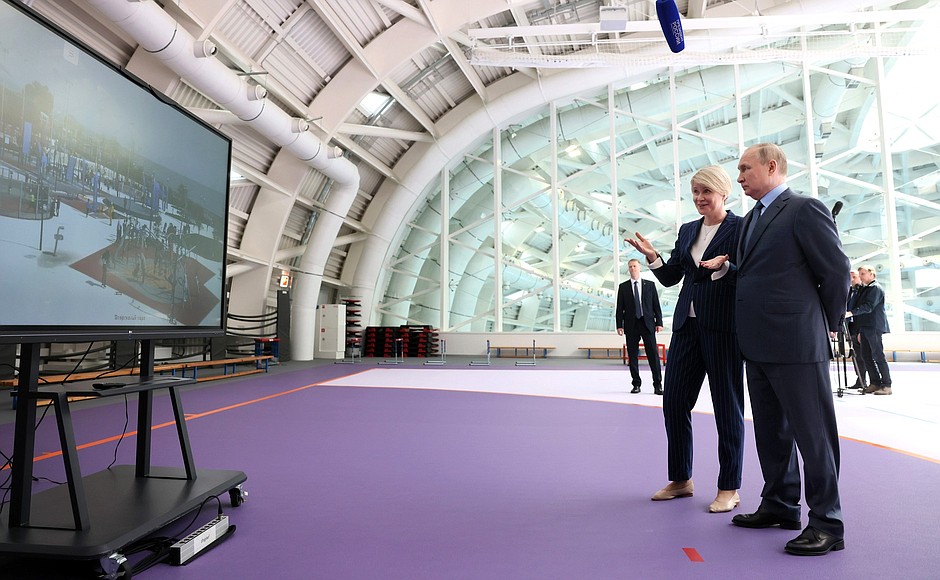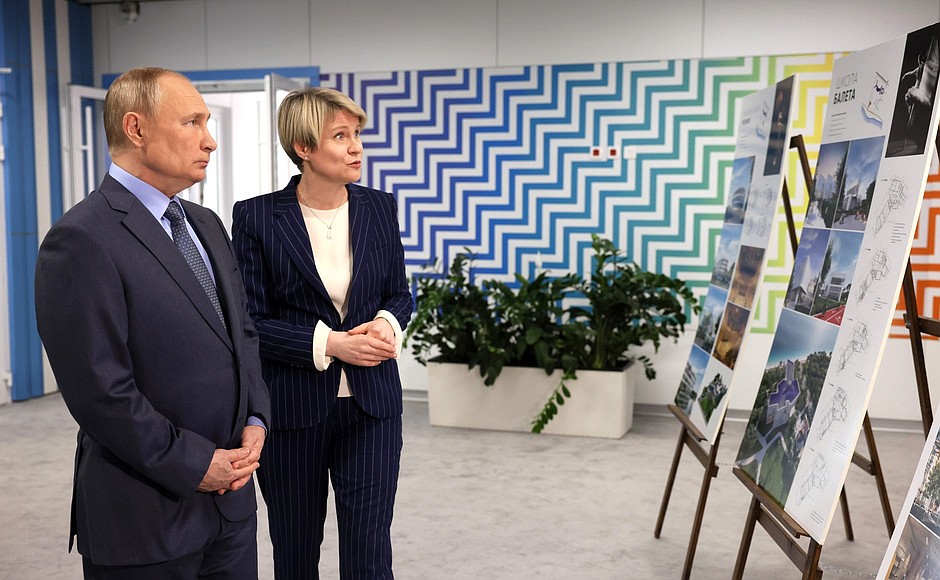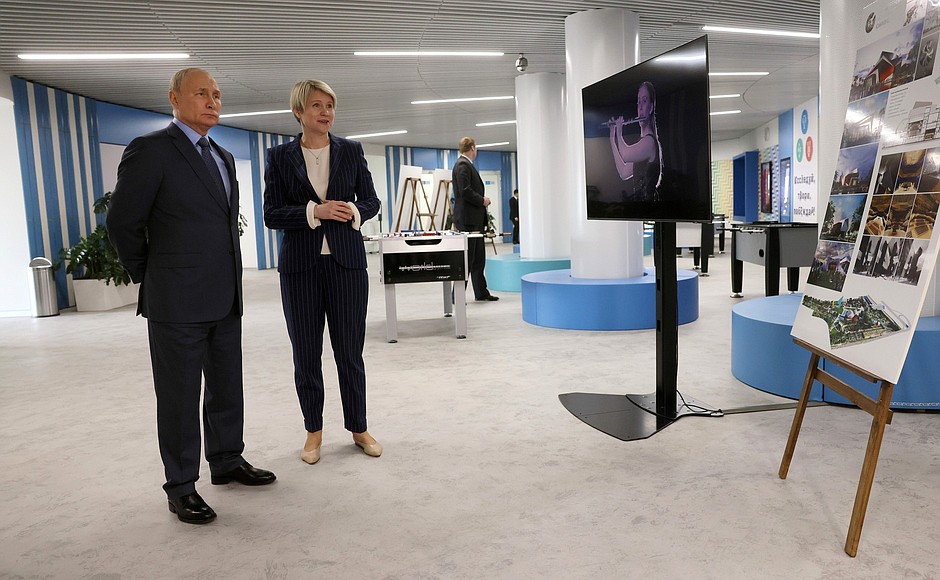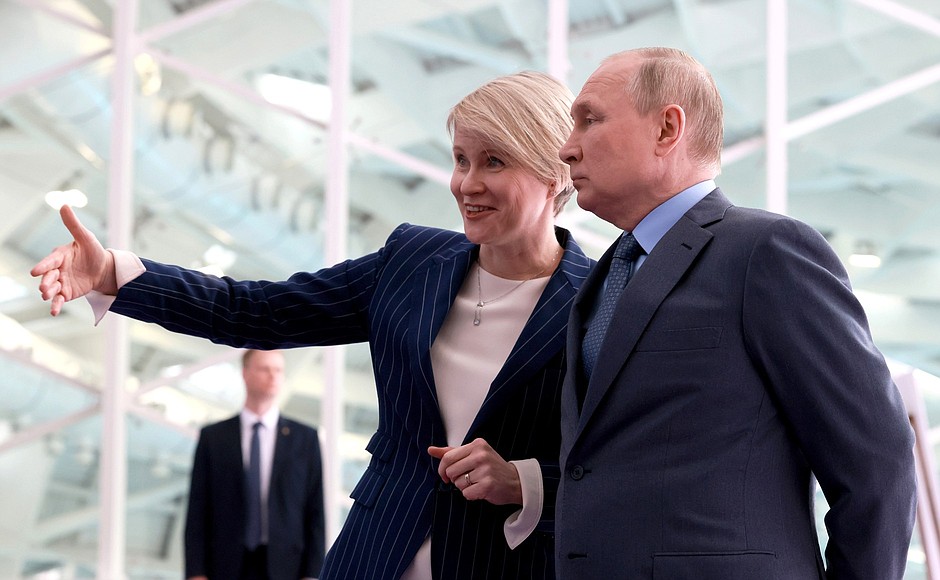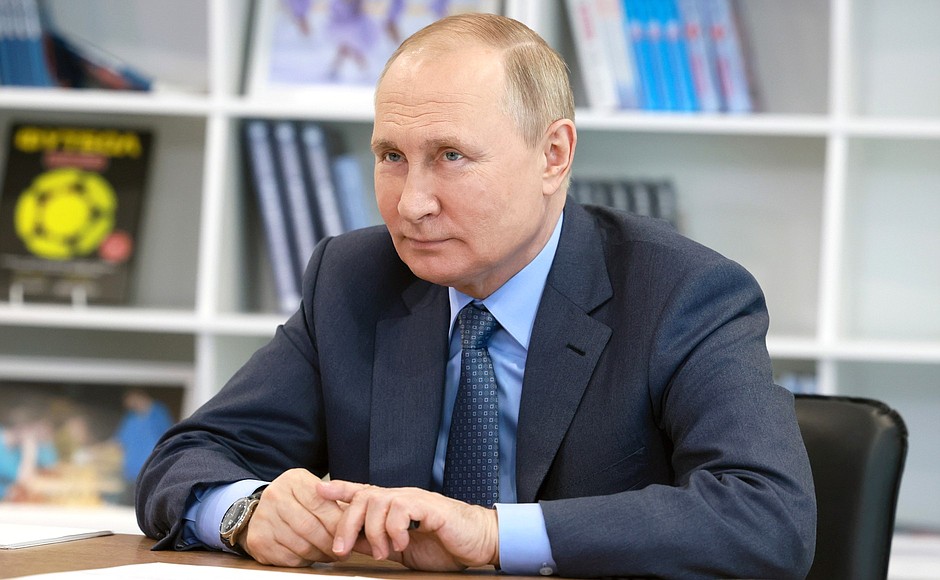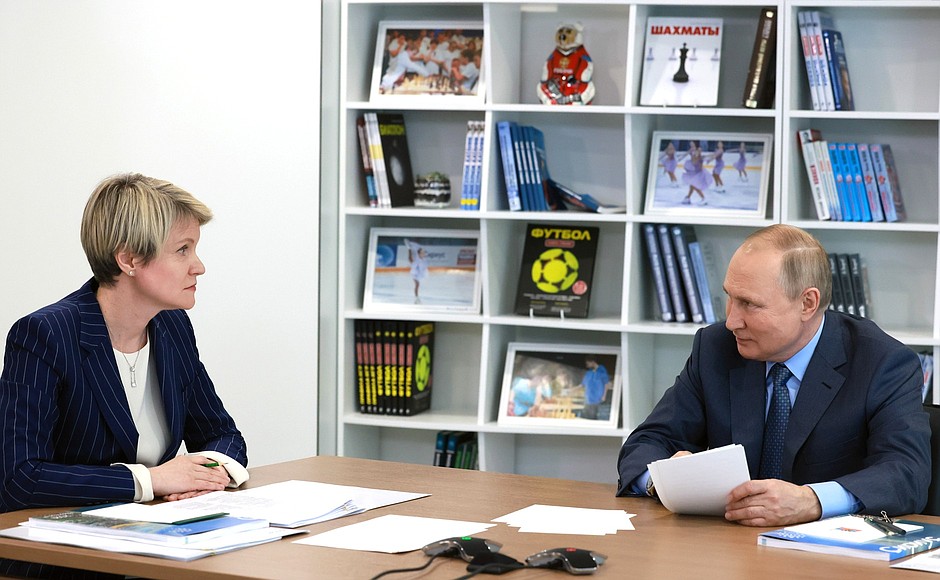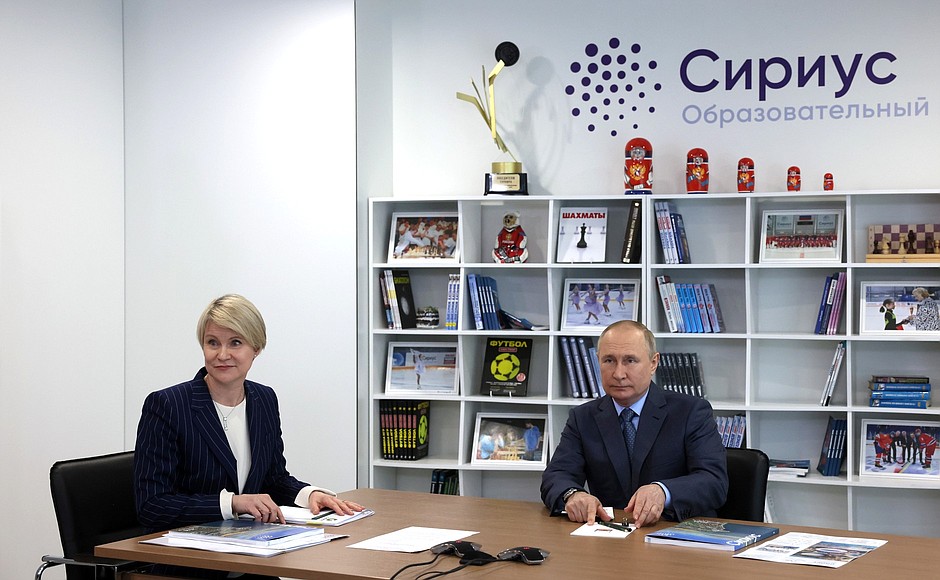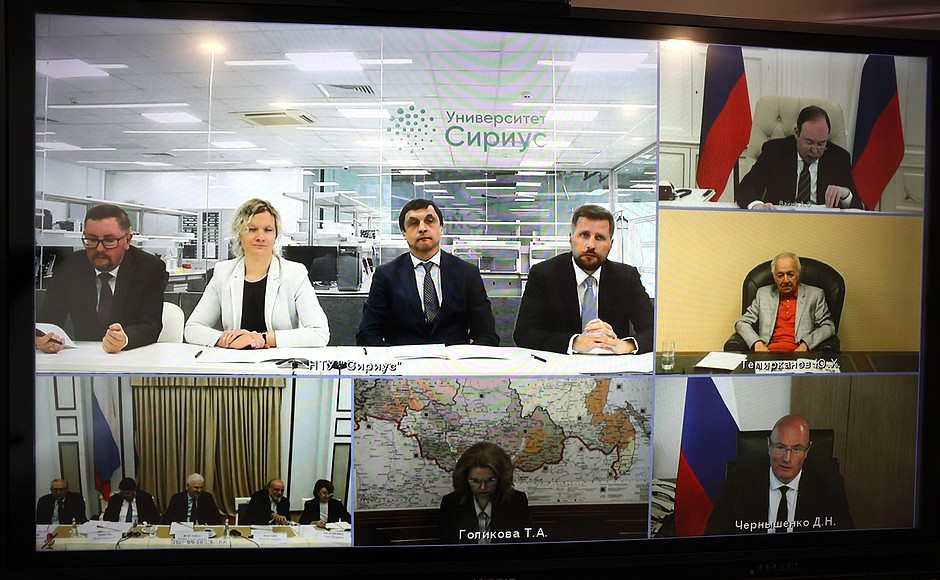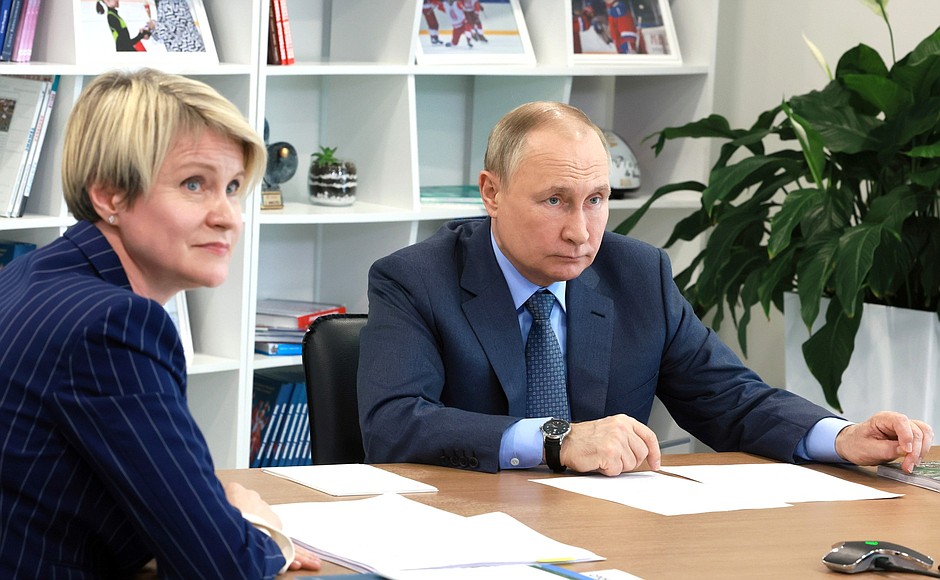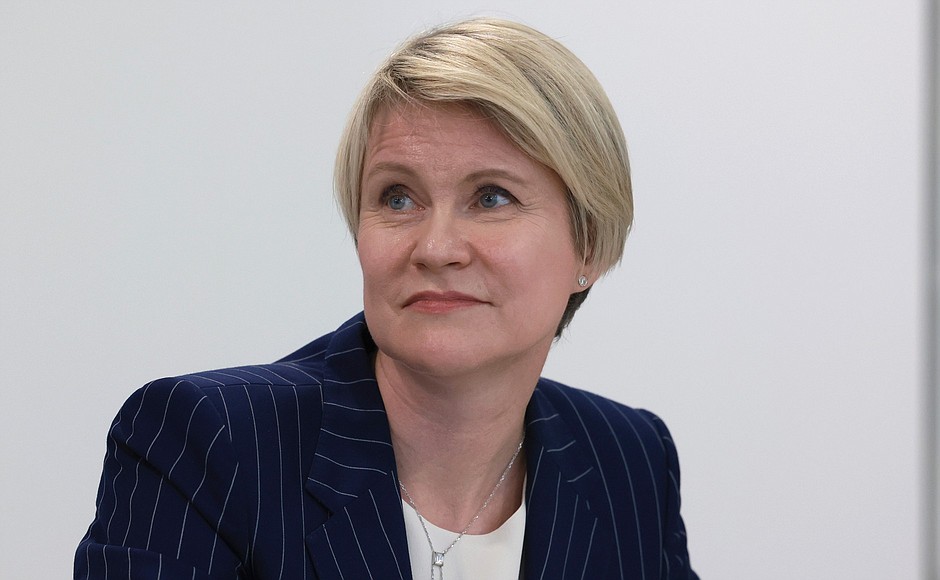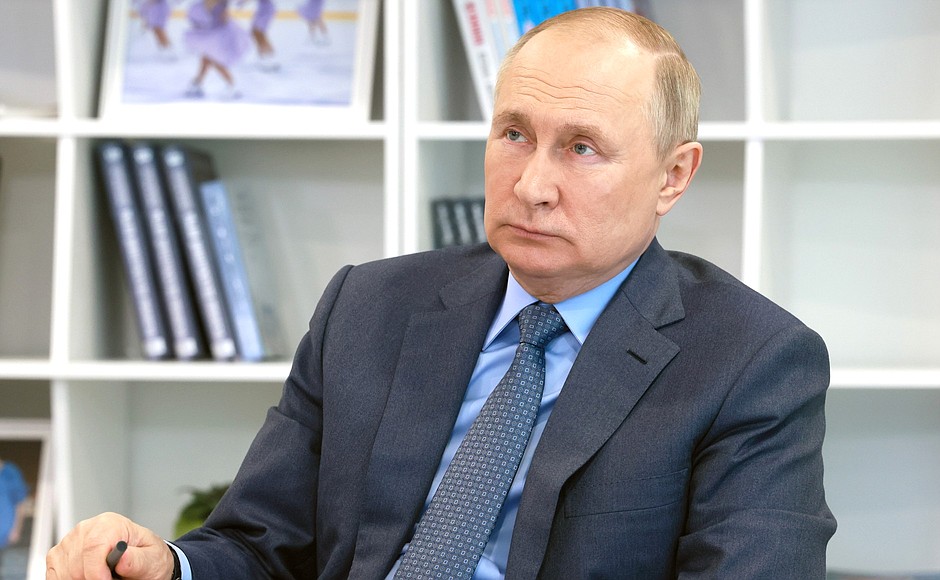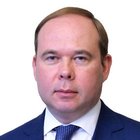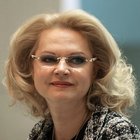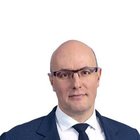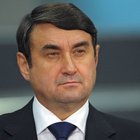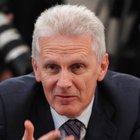Members of the Board of Trustees attending the meeting included Chief of Staff of the Presidential Executive Office Anton Vaino, deputy prime ministers Tatyana Golikova and Dmitry Chernyshenko, Presidential Aides Igor Levitin and Andrei Fursenko, Head of the Presidential Directorate for Science and Education Policy Inna Bilenkina, founders of the Talent and Success Educational Foundation President of the Russian Figure Skating Federation Alexander Gorshkov, Vice President for Development of the Kontinental Hockey League (KHL) Valery Kamensky, Artistic Director of the Dmitry Shostakovich St Petersburg Academic Philharmonic Hall Yury Temirkanov, and Executive Director of the Moscow Centre for Continuous Math Education Ivan Yashchenko. The meeting was also attended by Talent and Success Foundation Director Yelena Shmeleva and senior managers of the Sirius Science and Technology University.
Before the meeting of the Talent and Success Foundation Board of Trustees, the President visited the Sirius Educational Centre created at his initiative using Olympic facilities in Sochi.
At the recently finished Sport building, Vladimir Putin toured a swimming pool, a gym and multi-purpose sports halls. The President was also introduced to the development concepts of the educational centre, the science and technology cluster, and other clusters on the Sirius federal territory.
* * *
President of Russia Vladimir Putin: Colleagues, good afternoon.
I am glad to see you all.
Ms Shmeleva and I have just looked at the growing sports infrastructure at Sirius, walked around the Sports building for the educational centre students.
I have no doubt that this place, as well as the entire Sirius federal territory, will pave the way for Russia’s future victories, not only in sports, but also in culture and art, science and technology. I mean, initially, Sirius was created primarily for the development of science, technology and education.
Undoubtedly, young people’s energy and daring will help create new meanings, ideas and solutions. And Sirius will be a bright guiding star, living up to its name, and a guiding star for our talented young people, and not only in the span of the current decade, but for the entire 21st century.
The scale of the goals that we are setting for the Sirius team should be fully consistent with its highly responsible mission. I propose that we discuss the specific steps to achieve these goals at today's meeting of the Board of Trustees of the Talent and Success Foundation.
Sirius is primarily designed to play a tangible role in strengthening the country’s technological sovereignty. This is always important, but particularly so today – I will not go into all the reasons now. But it is vital to fulfil our plans on creating a powerful innovation centre in the Imereti Valley. The centre’s modern laboratory complex is supposed to open this summer, which will considerably enhance the scientific and education base at Sirius University, which was established last year.
(Addressing Yelena Shmeleva) When is the laboratory base supposed to open? In fact, it is in the process of opening, given that the laboratories are operating.
Head of the Talent and Success Educational Foundation Yelena Shmeleva: Yes, of course.
Vladimir Putin: How many laboratories are there?
Yelena Shmeleva: The laboratories are operating. Our colleagues from there have just joined us and will talk about this in more detail.
In fact, we are embracing more and more programmes – both scientific and education programmes. The first stage will be ready this summer. As for the second and third stages of this laboratory complex, we are planning to develop them with our partners as part of the cluster.
Vladimir Putin: Excellent.
In this context, it is very important to approach the selection of companies – residents of federal territory. It is necessary to introduce clear, objective requirements for assessing their performance in terms of efficiency and responsibility for reaching the desired results.
I would like to emphasise the following point: this is not about claiming a place in the IT and biotechnology park or building some beautiful office, important as this may be. We are now in this building. It is perfectly obvious that it is very comfortable, beautiful and modern. One is tempted to come here and not just to visit but to do everything that the opportunities here offer. This is why offices are also important. This is true.
But if businesses come to Sirius, they need to make real breakthroughs, achieve commercial success and make commercially viable products, because here at Sirius success should be part of every step. And it is essential to be directly involved in creating education programmes for training a large number of people capable to work with advanced technology.
In this regard, I would like to talk about what should be done in the near future – at least as I see it.
I consider it necessary to work out new, accelerated mechanisms for training IT specialists at the IT college, which opened at Sirius, together with our high-tech companies. This is an absolute must, we understand this very well, as it is impossible to move forward without personnel.
Second. I would ask Sirius, together with its partners, to create special modules on cybersecurity for technical universities and faculties, so that future engineers and designers, regardless of their focus, have strong skills in protecting our critical infrastructure, as well as domestic industrial and information systems.
Further. One of the key areas of Sirius research is the creation of advanced solutions aimed at improving the quality of people's lives. First of all, this concerns such areas as genetics, medicine, pharmaceuticals, and environmental protection. One of the laboratories is dedicated to one of these areas, namely genetics, if I am not mistaken.
In order to expand the capabilities of life sciences research, I propose speeding up the construction of a university clinic in Sirius.
(Addressing Yelena Shmeleva) Although we need to draw a distinction – we have already discussed it – between the university clinic, training and science, and service for those who live in Sirius.
Yelena Shmeleva: Yes.
Vladimir Putin: It is clear that the university clinic can also do this, but it is necessary to distinguish between the areas of activity of the medical institution for serving people, and science and education.
It is also necessary to establish an international centre for the environment and climate change.
I would like to note that thanks to the innovative environment for scientific activity, leisure and sports, Sirius is becoming a magnet for Russian students, post-graduate students, scientists, and employees of high-tech companies. Despite certain restrictions, our compatriots living abroad, as well as specialists from China, India, Iran and many other countries, want to work here.
Well, why not? The conditions are comfortable, the climate is wonderful. If we create conditions related to equipment for research, establish a school and ensure good medical care, then, I think, the number of people who want to live and work here will only increase. In a word, the number of residents of the federal territory will grow, and they must be provided with everything necessary.
Therefore, we should build modern housing in the Imereti Valley, and we need to think about this here, too. Of course, everything is nearby, people can live in Greater Sochi, but we surely need to think about what can be done here.
However, we had the main thing from the very beginning: the training of personnel, our work with these talented children, which should be designed in a way that draws children from all across the country. In fact, this is how Sirius got its start, and it remains our main task.
I think Sirius is also able to make a significant contribution to improving the quality of all Russian education, and above all, the primary issue is, of course, teacher qualification. I know that Ms Shmelyova has been working on this for many years. You have created an entire retraining system for teachers here, and in a variety of areas. As far as I know, this work is proceeding quite actively.
It is important that not just students and graduates of pedagogical universities come to work in schools, but also mathematicians, physicists, IT specialists, philologists, and historians, that is, future or experienced specialists with in-depth training in a particular field.
We have already amended the current laws that allow students to work – regarding both specialised and non-specialised universities. The approaches differ, but they expand the possibilities of involving our young people who are still receiving higher education but who have reached a level where they can share their knowledge with their younger, let us say, partners and schoolchildren.
We need to help all these specialists to receive appropriate pedagogical training. And I would ask Sirius to develop and implement such an educational programme in domestic universities.
I also consider it necessary for Sirius to coordinate the creation of a network of strong schools with advanced methodology in Russia, and in those areas where powerful technological and industrial growth centres are now being built almost from the ground up.
I know that Sirius is working on this, and would like to just note that this area is important, so I am asking you not to lose sight of it. I mean being hands-on with these places and these large projects of ours being created in Russia.
For example, the largest gas processing plant in the world, a microelectronics cluster in Valdai, Novgorod Region (I hope it will be created; the first steps are being taken), a biopharmaceutical cluster in the Yaroslavl Region, resort businesses in the Altai Republic, environmentally friendly energy in Kamchatka, the construction of transport and logistics infrastructure in Murmansk, in the Murmansk Region, in the Yamal-Nenets Autonomous Area, as well as in the key points along the Northern Sea Route.
This is, as it were, geographically far from Sirius, but congenial, meaning that large research and production clusters are being created there. If we manage to establish direct contact with these development centres, we will thus make a significant step forward in forming a holistic career trajectory for young people and children who join Sirius at some point and take their first steps here. You are supporting them. Then, there is a university and there are laboratories. If we manage to establish direct interaction with the development clusters, this could be the next step in human development. First, in training the necessary specialists and in developing everyone who wants to work and enjoy success here at home.
Next, using the experience and competencies, I would like Sirius to think about creating methodological centres for supporting and cultivating talented children in the Donetsk and Lugansk regions and developing special teacher training programmes. They need this and we must support them.
I would like to point out that Russia’s principled position on protecting and supporting the people of Donbass does not sit well with many of our partners, but these people really need our support at this point, as I have already said. This must be done based on humanitarian considerations.
Here is another point that I would like to make. We are faced with multiple restrictions in sports and even the arts. Of course, we need to promote diverse forms of support for our talented youth, including schoolchildren. What I mean is to hold Olympiads in mathematics, physics and chemistry. Our Ministry and the Government are involved in this. Sirius should step up and help create proper, respectable conditions for hosting events of this kind.
By the way, those who want to maintain relations with us, primarily the SCO and BRICS countries, are very interested in Sirius. These are great states populated by billions of people with world-class achievements in many areas. As you are aware, I was here with some of our colleagues, and they were impressed by what they saw here and want to make contacts with Sirius through their ministries, departments, specific schools, universities, and research centres.
I think this should be put to good use.
I would like to close with this. I am now pleased to turn it over to Ms Shmeleva. Please go ahead.
<…>
Vladimir Putin: I would like to thank our colleagues for the joint work today. I would like to express my hope that we will continue to do everything to promote Sirius as one of the most important places where we must support our traditional areas, in which we are traditionally leaders, and new areas of activity, for us not only to be at the forefront of success in all these areas, but also to feel the pulse of life in these critical areas, so that all of it benefits Russia, so that we are able to make use of our competitive advantages.
As a reminder, Sirius was created as a platform for cultivating talented and promising young schoolchildren, but little by little it is growing in accordance with the demands of the time. As you can see, the university has been created and laboratories are being created.
I think we have enough areas to focus on and we do not need any more of them. We need to focus on what we have: the mathematics schools, chemistry schools, other specialised schools, music schools, and choreography schools. All things in which the Soviet Union and Russia have always been and remain undisputed world leaders. Everything that is needed for the future of our country should not only take root in this territory, but also help sustain our intensive development. The conditions here are very good, and we need to use these conditions to the maximum in order to achieve results.
Thank you all very much. We will remain in communication with you, keep in touch and promptly respond to emerging challenges so that we can overcome them.
I wish you all the best. Thank you very much.
